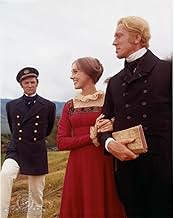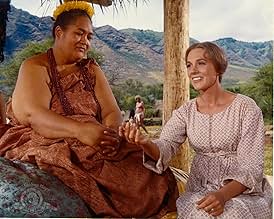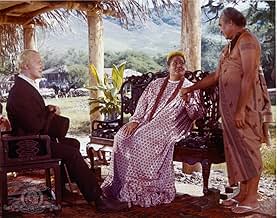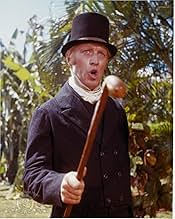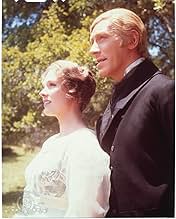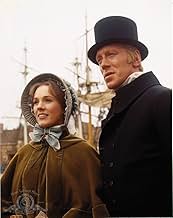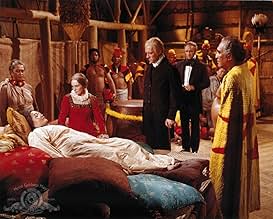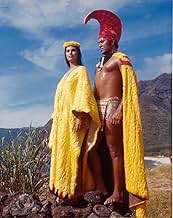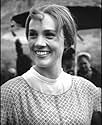An American missionary and his wife travel to the exotic island kingdom of Hawaii, intent on converting the natives. But the clash between the two cultures is too great and instead of unders... Read allAn American missionary and his wife travel to the exotic island kingdom of Hawaii, intent on converting the natives. But the clash between the two cultures is too great and instead of understanding there comes tragedy.An American missionary and his wife travel to the exotic island kingdom of Hawaii, intent on converting the natives. But the clash between the two cultures is too great and instead of understanding there comes tragedy.
- Directors
- Writers
- Stars
- Nominated for 7 Oscars
- 2 wins & 10 nominations total
- Charity Bromley
- (as Diane Sherry)
- Directors
- Writers
- All cast & crew
- Production, box office & more at IMDbPro
Featured reviews
Even if you hate aspects of history, it doesn't matter. This motion picture is great theater. Humanity is put on display by gifted actors under gifted direction. The script strikes home because it is so spare and poetic.
It is a pity that of the cast members, Jocelyn LaGarde, who is the perfect alii nui--Queen of the Hawaiians--gets such a skimpy bio. Under her name, all we get is that she'd been six feet in height. What a natural actress! What an open smile! What powerful yet benign reality!
Julie Andrews and Max von Sydow stay deep in their characters. The tragedy of cultures' colliding never ends. On a personal level, we get that eternal conflict again, between the classically female value of compassion and the male value of standards--you know...you must earn your father's love.
What is special must be preserved. Nationhood must live. There is much grist for thought in this sweeping drama.
The movie is only about one-fifth of the whole book. Too bad. The movie leaves a lot of unresolved plot threads which are resolved later in the book. Subplots which seem inconsequential turn out to have major implications to the plot of the novel. Minor characters from the movie become more important as the story progresses. For example, Gene Hackman's Dr. John Whipple and Richard Harris' Raefer Hoxworth have only a few scenes in Hawaii, but their characters are perhaps the two most important characters in the book. Whipple and Hoxworth are the ones who challenge the authority of the missionaries and, in a sense, are the true foils to Abner Hale. They also are the ones who go into business.
As a result, the movie, standing by itself, tends to introduce characters and subplots with no relevancy to the main Abner-Jerusha-Malama-Keolo story line. Perhaps a sequel was planned? In short, Hawaii would have worked better as a mini-series.
********************* How the Novel Ends:
Abner Hale's son, Micah, who was last seen getting a boat to the mainland to attend Yale University, becomes a minister like his father. The sea captain, Raefer Hoxworth, marries Noelini, the daughter of the Alii Nui. Micah then meets and falls in love with Raefer's and Noelini's daughter. They get married. Abner Hale scorns Micha; claiming the Micah has gone "whoring with the heathens." Micah quits the ministry and becomes a partner in Raefer Hoxworth's shipping company - now called Hoxworth and Hale.
John Whipple and Retire Janders (the captain of the ship that brought the missionaries to Hawaii) are partners in Janders & Whipple. Initially a trading company, general store, and ship chandler, they start acquiring land and growing sugar. J&W eventually becomes a plantation company and needs cheap labor to work their fields. John Whipple imports Chinese workers.
A generation after the movie ends, the descendants of Hale, Whipple, Janders, Hewlett (the man who was kicked out of the church for marrying a Hawaiian woman) and the Hoxworth are the commercial, social, and political elite of Hawaii. Micah Hale leads the movement to have the United States annex Hawaii and serves as the first governor of the Territory of Hawaii.
The descendants of these families continue to build their businsses and develop the islands. In an ironic twist, the families, refusing to marry Hawaiians or Chinese, intermarry. Eventually cousins marry cousins - the very practices Abner Hale condemned from his puplit. You eventually get characters named: Whipple Hoxworth; Hoxworth Hale; Hewlett Janders; Bromley Hoxworth.
Finally, at the end of the novel the rich, post-WW II descendants of the missionaries talk about their "distinguished ancestors." Their descriptions and interpretation of events, differs from what it portrayed in the earlier chapters.
Did you know
- TriviaJocelyne LaGarde is the only performer in Academy Award history to be nominated for her only screen role. LaGarde had never acted before, and never acted again in her entire life.
- GoofsWhen Jerusha is in labor Abner times her contractions very closely with his pocket watch. Most pocket watches in the 1820's had no second hands, particularly one owned by a poor missionary.
- Quotes
Dr. John Whipple: [Addressing Abner, while holding Keoki's lifeless body, victim of the measles epidemic that has ravaged the native Hawaiians] There's nothing you could've done for him... When Captain Cook discovered these islands 50 years ago, they were a true paradise. Infectious disease was unknown. They didn't even catch cold! And there were 400,000 of them - now there are less than 150,000. You and I may well live to see the last Hawaiian lowered into his grave - with proper Christian services, of course.
- Alternate versionsOriginal version ran 189 minutes; subsequently cut to 171 minutes. The general release version ran 151 minutes. Full-length version available on home video.
- ConnectionsFeatured in The Dick Cavett Show: Julie Andrews/Blake Edwards (1971)
Details
- Release date
- Country of origin
- Languages
- Also known as
- Hawaii
- Filming locations
- Bodo, Norway(Missionary boat saing thru Magellan Straits)
- Production companies
- See more company credits at IMDbPro
Box office
- Budget
- $15,000,000 (estimated)
- Runtime
- 3h 9m(189 min)
- Color
- Aspect ratio
- 2.35 : 1


